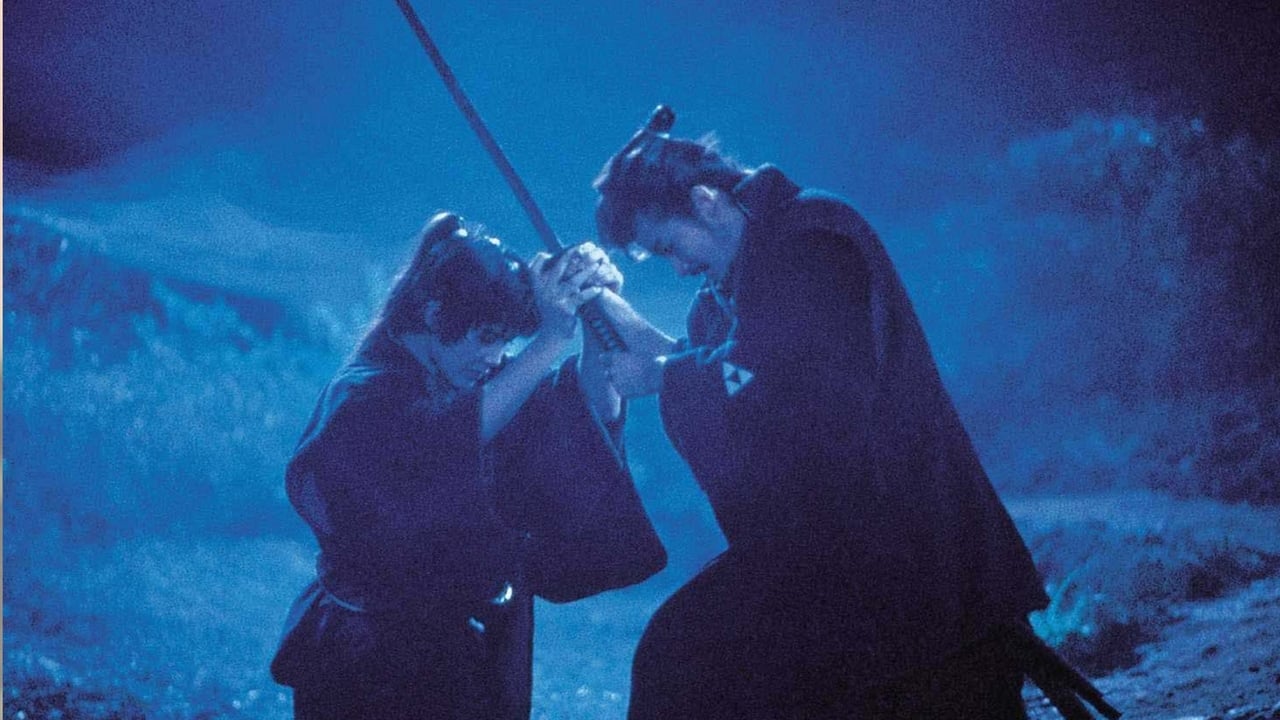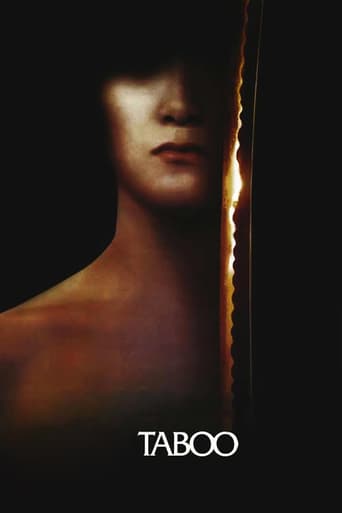

"Gohatto" is set in mid-19th century Japan, among the Shinsengumi, a samurai militia created to uphold law and order and to defend the shogunate against reformist forces which sought to restore power to the Emperor. The central character is Sozaburo Kano, a teenage recruit to the force. Sozaburo is a beautiful young man, whose effeminate appearance inspires sexual desire among his comrades.The film's title has been translated both as "Taboo" and "The Code", and refers to the strict code of discipline which prevailed among the samurai, severe violations of which could be punished by death. Despite the severity of the samurai code, however, homosexuality per se was not taboo, as it would have been in Western societies at this date. A British soldier of the Victorian era who had a sexual relationship with a comrade would have been liable to severe punishment and, at the very least, to dismissal from the Army in disgrace. In Japan, however, homosexual relationships among the samurai were tolerated. Sozaburo, however, poses problems for his superiors in that his quasi-feminine beauty leads to jealousies among the men and thereby endangers discipline. Although he is the central character, he is a passive one; the film is less about him than about the passions he unleashes, passions to which Sozaburo himself seems largely indifferent.As a drama, "Gohatto" is not particularly interesting; my interest was held much more by its aesthetic aspects. To a Western audience, the film will seem strange and exotic, but its strangeness does not lie in flamboyance or showiness; indeed, I suspect that a Western film celebrating nineteenth-century gay life would be much more flamboyant in style. Rather, its strangeness lies in its austerity and restraint. The acting is deliberately stylised, almost ritualistic. The look of the film is also austere. It is set at the very end of what might be called the era of Old Japan. Although the 1850s and 1860s were the period when the Japanese were first starting to open their country up to the West, there is very little, if any, visual evidence of Western influence on show here. (Were the film to be set only a decade or two later, say around the time featured in "The Last Samurai", Western influences would have been much more visible).Director Nagisa Ōshima's palette is a very limited one; the black and white of the samurais' uniforms, together with browns and greys. Bright colours are used very sparingly. Most of the film is set indoors, in traditional plain, sparsely furnished Japanese interiors. The result is an aesthetic which is austere, yet strangely beautiful- and also very masculine. Only briefly in the scene set in a brothel, where we see brighter colours and richer decoration, do we see a more feminine aesthetic. "Gohatto" can perhaps be thought of as an "art film" in the most literal meaning of the term, the sort of film where every shot seems to have been composed like a picture, and a work of icy, formal beauty. 7/10
... View MoreI have seen this movie twice now. I thought I would give it another chance and, besides, I couldn't remember why I had given it such a poor rating.Visually and musically, there is much to like about this movie. The photography is beautifully lit and stunning throughout. The musical score is original and gorgeous.My issue is with the story, which, as a gay man, I found painful to sit through. The youngest samurai, Kano, is such a beauty that he is highly desired by his more experienced peers and teachers. If only his personality were as winning. His expression never changes, so it is impossible to guess where his head is at any given time. He is totally passive when making love and never seems to show any affection except when he spars with the man whom everyone suspects is his lover. Then, though clearly a better swordsman, Kano allows himself to be defeated, which only serves to cause the shogun master to believe that his suspicions were correct.This film does its best to refute the mythology that has sprung up--at least in the US--concerning the supposed acceptance of homosexuality within the samurai cult. Kano's alleged gayness only causes his peers to view him with suspicion, if not disdain. If not for his skill with the blade and willingness to use it, he would have no stature at all. The plot thickens when his alleged lovers begin turning up dead. Were they killed out of jealousy? Or was it something more sinister? I won't spoil it for you. I will just say that if you're looking for a beautifully-produced Japanese gay love story, you'd do well to keep looking. Taboo will leave you with a splitting headache (pun intended).
... View MoreThis film has some promise at the beginning but doesn't deliver on it.It starts with hints that the main character has hidden motivations and is playing a deeper game than we are being shown.Kano seems to be hiding the extent of his abilities and his motivation for joining the militia, and then it just stops, these themes aren't really advanced any further.The plot just peters out without resolving anything or going anywhere.It is well acted and extremely stylish and the ending is good in a way but it just seems like there should have been more too it, I just found it boring and pointless.
... View MoreThis lovely film about a young man whose beauty eats other men's souls asks more questions than it answers. Yay! I've read so many reviews of this film that express dissatisfaction with its ethereal vagueness. But that's kinda the point. People in Japan in 1860, or today for that matter, don't generally see being gay as an identity, but as an action or series of actions. Expecting the characters to somehow come out of the closet is a peculiarly western demand. Ambiguity of morals, responsibility, blame, action are all pretty typical of Japanese cinema. Like pistachio ice cream, it's not the flavor for everyone. Other reviews complain that Matsuda Ryuhei's looks are more bizarre than beautiful. Once again, he looks Japanese. Zhang Ziyi in Memoirs of a Geisha is not what real Japanese people, let alone idealized 19th century ones, look like. This film really explores perversity. Not because of a bit of semi-graphic sodomy, but because almost everyone in the film loses their moral compass over a pretty face. What makes it titillatingly icky is the fact that Matsuda Ryuhei was only 15 when this was filmed.
... View More